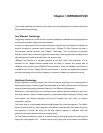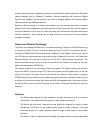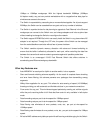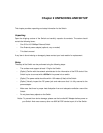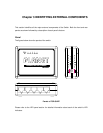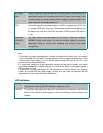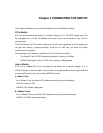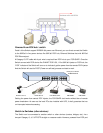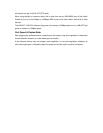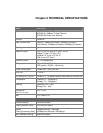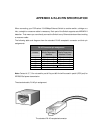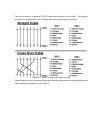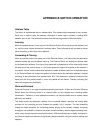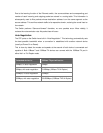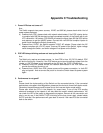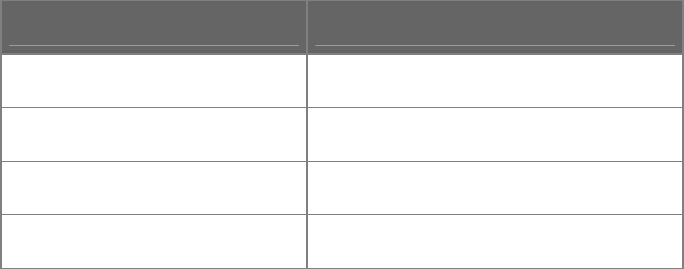
Due to the learning function of the Ethernet switch, the source address and corresponding port
number of each incoming and outgoing packet are stored in a routing table. This information is
subsequently used to filter packets whose destination address is on the same segment as the
source address. This confines network traffic to its respective domain, reducing the overall load on
the network.
The Switch performs “Store-and-forward” therefore, no error packets occur. More reliably, it
reduces the re-transmission rate. No packet loss will occur.
Auto-Negotiation
The STP ports on the Switch have built-in “Auto-Negotiation.” This technology automatically sets
the best possible bandwidth when a connection is established with another network device
(usually at Power On or Reset).
This is done by detect the modes and speeds at the second of both device is connected and
capable of. Both 10Base-T and 100Base-TX devices can connect with the 100Base-TX port in
either Half- or Full-Duplex mode.
If attached device is: 100Base-TX port will set to:
10Mbps, no auto-negotiation 10Mbps
10Mbps, with auto-negotiation 10/20Mbps (10Base-T/Full-Duplex)
100Mbps, no auto-negotiation 100Mbps
100Mbps, with auto-negotiation 100/200Mbps (100Base-TX/Full-Duplex)



